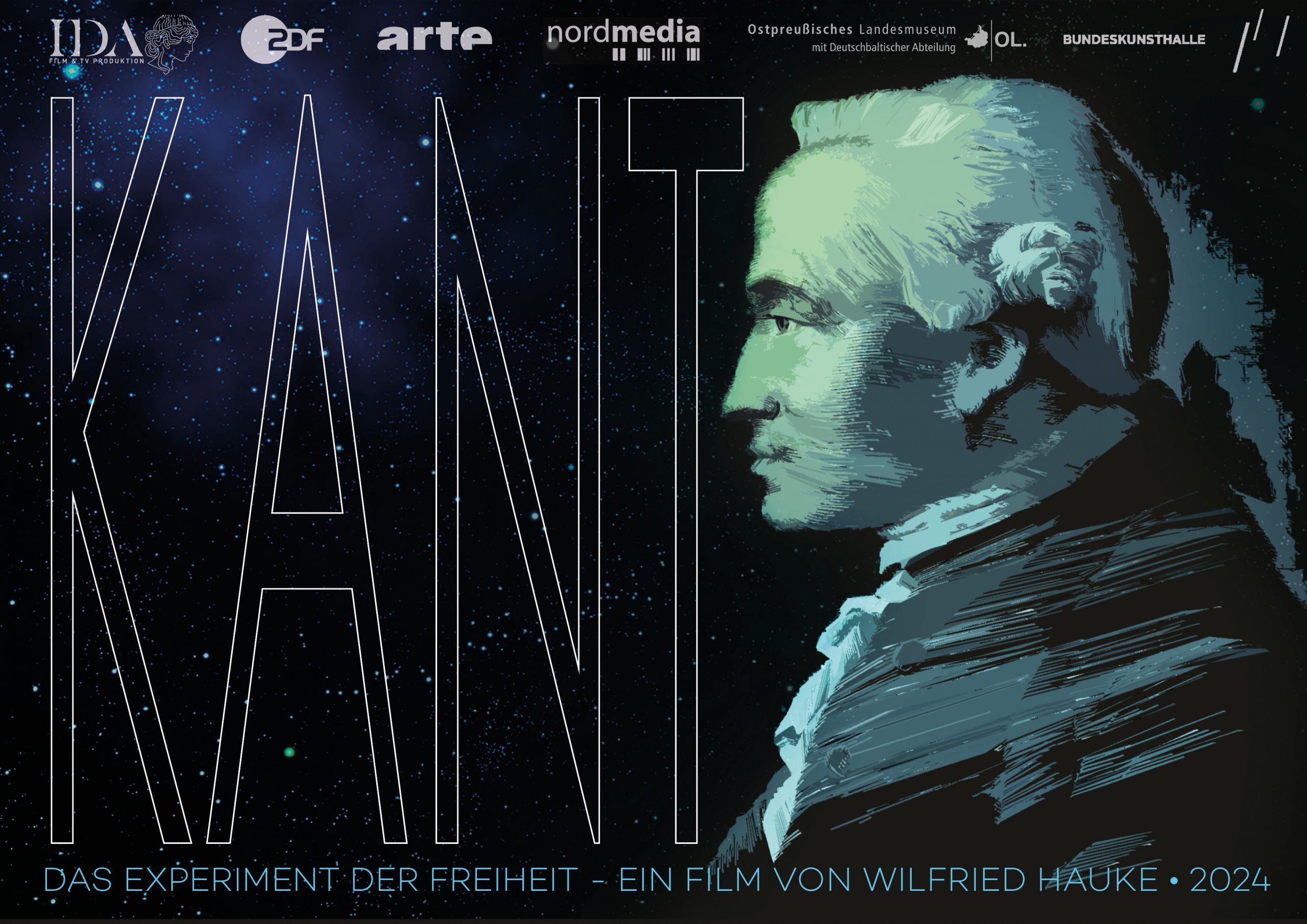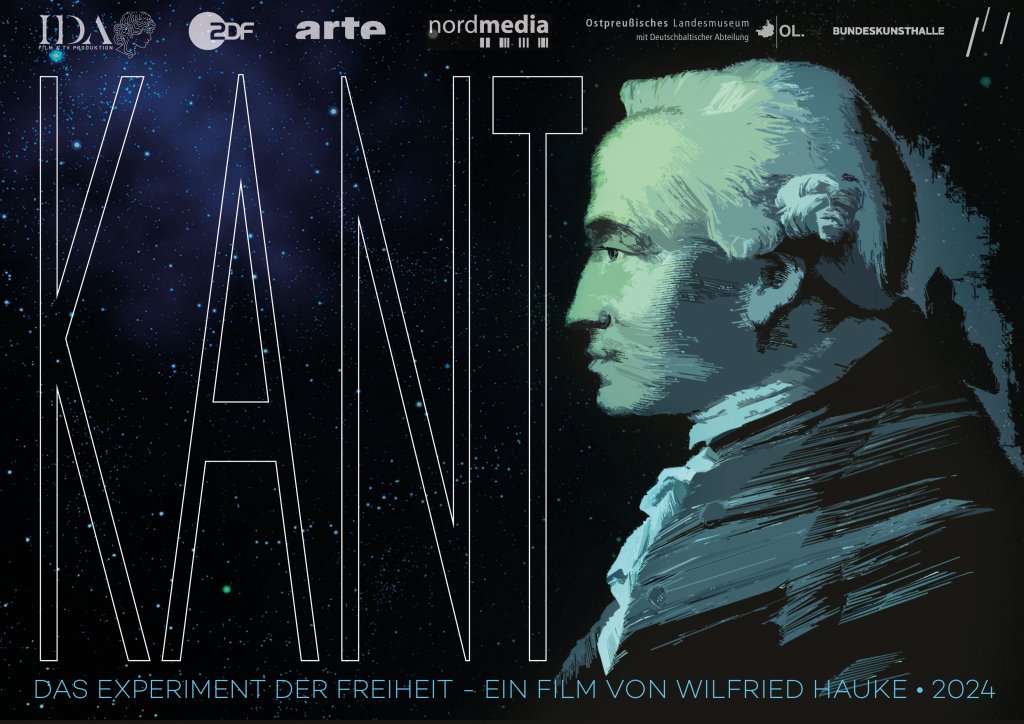

Staged Documentary, 54 min, ZDF, ARTE, 2024
Premiere: Bundeskunsthalle Bonn / Ostpreußisches Landesmuseum Lüneburg, 2024 Initial Broadcast on ARTE in 2024
In 1798, the world-famous philosopher Immanuel Kant went strolling through Königsberg, now Kalingrad, Russia. He always followed the same route here in this hometown he never left, from his house near the castle down to the River Pregel and the Kneiphof part of town, to the cathedral and the old city center's seven bridges. The 75-year-old professor at Prussia's only university close to the border with the Russian Tsarist Empire had published his "Perpetual Peace" treatise three years previously.
This will later help define "peace" as a treaty under international law and frame the Charter of the United Nations. For Kant, peace isn't a natural state between peoples; it's fragile and must ever be secured against new wars.
In lectures and writings, such as the three "Critiques," Kant revolutionized Enlightenment thinking. As a follower of Newton, he learned that in recognizing the world, man simultaneously restructured it. Kant calqued Newton's natural-scientific method into his thinking on morality and ethics and discovered moral laws as universal as "gravitational force": Man can act on the basis of an innate facility in such a way as can be considered morally correct by all other people. Kant's "Categorical Imperative" isn't intended to be a virtue diktat. He actually means to offer universal guidelines: People are economically self-interested and always want better conditions. Why not then train their will for betterment?
Kant's experiment in freedom is ongoing to this day. He posits that it's only through knowledge of the good that one can attain freedom. But what is good and what is ill? Kant is a pessimist about the actual betterment of people, so he hopes that a more just society might limit the evil in mankind and create peace. As opposed to his reputation as a pedantic scholar, this makes Kant a radical innovator: His thinking having paved the way for modern democracy, Kant is the most quoted philosopher in the world.
In view of the climate catastrophe and war in Europe, many of Kant’s questions are being posed afresh today. But Kant is also controversial. Alongside his ethics, he formulated racial theory based on 18th century thinking; this is today held against him and the Enlightenment. In his famous peace "sketch," however, Kant did a volte-face, criticizing colonialism and the purely utilitarian Enlightenment and declaring his support for equal rights for all mankind. Perhaps, though, he's to remain forever alone on his stroll while waiting for "perpetual peace."
Wilfried Hauke
Olaf Markmann
Michael Schlatow
George Kochbeck
Jörg Rode
Jan Philip Lange / Junifilm
Fabian Preuss
Wilfried Hauke
Christopher Janssen
IDA Film & TV Produktion
In cooperation with Ostpreußisches Landesmuseum Lüneburg
and Bundeskunsthalle Bonn
nordmedia
We are making creative documentaries and series for television and cinema.
© IDA Film & TV Produktion GmbH | Created with ❤ by Joel Hausting.